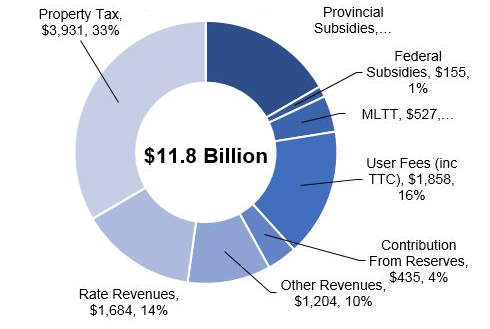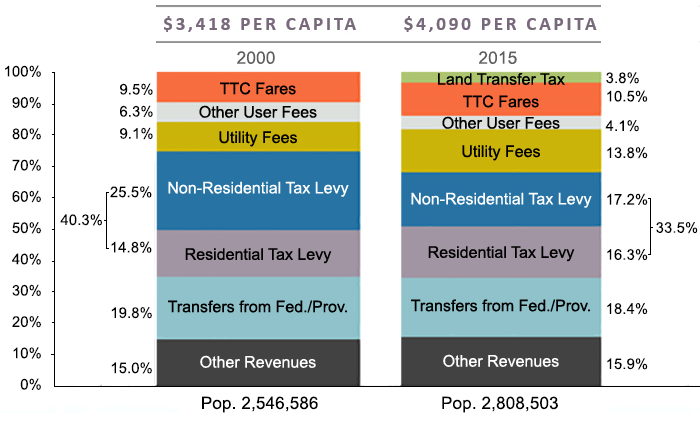I have no problems with an increase in property taxes, or a municipal income tax, but only after we tax non-residents for driving in Toronto.
It seems so clear to me - aside from austerity, the infrastructure that Toronto provides is overused by people who don't contribute to its cost. The Gardiner is just the largest example. Make driving prohibitively expensive for people who don't pay taxes to the city, force them to use the provincially funded transit. I guarantee that there would be a massive culture shift in this city away from the personal vehicle.






